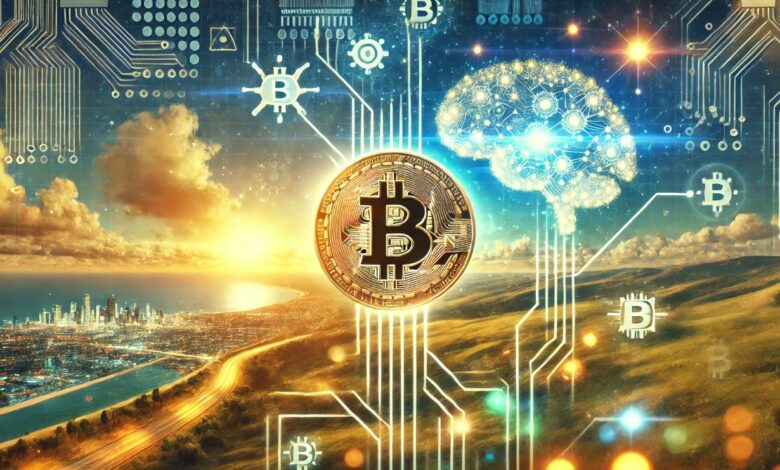
In a forward-thinking analysis, Dennis Porter, a market expert, CEO, and co-founder of the Satoshi Action Fund, underscores the burgeoning partnership between Bitcoin and artificial intelligence (AI). This alliance is poised to bring unprecedented advancements, particularly in the realms of energy management and financial transactions.
How Bitcoin Can Boost AI Capacity and Profits
Porter identifies one of the most significant aspects of this potential collaboration as the energy interaction between Bitcoin mining and AI operations. In the United States, Bitcoin miners are heavily investing in electrical infrastructure, such as data centers, substations, and transmission lines. Although not all mining sites are suitable for AI use, around 20% of them can be effectively converted.
Repurposing existing Bitcoin mining sites for AI operations presents notable advantages. These sites can be adapted much faster compared to building new data centers from the ground up. For instance, Porter notes that miners can power AI graphics processing units (GPUs) in less than a year, a stark contrast to the typical 4-5 years required for greenfield AI developments.
As demand for AI services continues to escalate, Bitcoin miners are in a prime position to leverage their existing power infrastructure. By repurposing just 20% of their capacity, these miners could potentially add $14 billion in annual profits by 2027. The inherent variability of AI workloads necessitates substantial energy resources that can fluctuate dramatically. Bitcoin mining operations can manage this variability by dynamically adjusting their energy consumption.
Without the flexibility offered by Bitcoin miners, AI data centers might force grid operators to depend on inefficient gas-powered peaker plants, which are both carbon-intensive and costly. By partnering with Bitcoin miners, the energy grid can maintain stability while reducing reliance on less efficient energy sources.
The Future of Finance
Transitioning to the financial implications of this partnership, Porter asserts that AI applications and services will soon require a form of currency that operates independently of human intervention. Traditional financial systems impose limitations such as the need for identification and addresses—conditions that AI cannot meet. However, Bitcoin presents a viable solution to this dilemma.
As a decentralized, trustless currency, Bitcoin allows AI to engage in commerce without the constraints of traditional banking systems. This enables AI to conduct transactions globally, at increased speeds and frequencies, without the need for human intervention.
As AI-driven economic activity expands, Bitcoin stands out as the currency of choice for autonomous AI agents. Its decentralized nature eliminates counterparty risks, allowing seamless transactions between AI applications and other entities—whether human or machine—across the globe. Porter concludes:
“As AI continues to evolve and scale, Bitcoin will be the trusted, decentralized money that powers AI’s growth. Bitcoin and AI are poised to reshape our economy, push boundaries, and unlock unprecedented opportunities. The time to understand this partnership is now.”
At the time of writing, Bitcoin trades at $65,200, marking a surge of nearly 3% in the last 24 hours.







